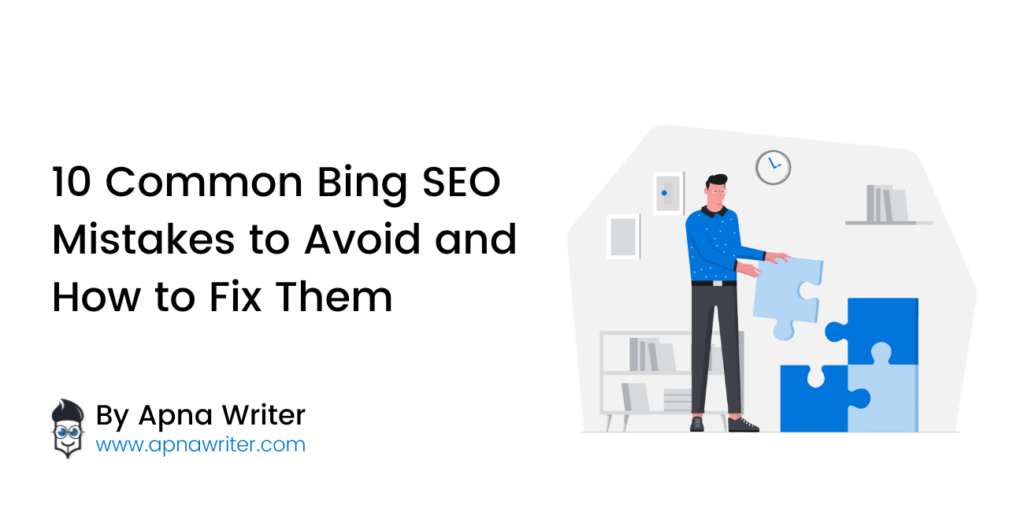While Google often dominates the SEO conversation, Bing is an important search engine that shouldn’t be overlooked. It commands a market share, and optimizing for Bing can boost your traffic.
Ignoring Bing’s Webmaster Guidelines is a critical mistake. Bing has specific guidelines that differ from those of Google. Thus, not adhering to them can lead to poor rankings or penalties.
Table of Contents
ToggleWhat is Bing SEO?
When we think about search engines, Google often dominates the conversation. However, Bing, powered by Microsoft, is a player in the search engine market with a bigger user base.
Bing SEO (Search Engine Optimization) involves optimizing your website and content to rank higher on Bing’s search results. While there are many similarities between optimizing for Google and Bing, understanding the unique aspects of Bing’s algorithms and preferences can give you a competitive edge.
Bing SEO focuses on several core areas, just as other search engines do. To succeed, you need to consider Bing’s specific ranking factors, which can differ from Google’s in key ways.
For instance, Bing places greater emphasis on social media influence and exact-match keywords than Google. Additionally, Bing values high-quality multimedia content, such as images and videos, and takes a different approach to handling backlinks.
Top Bing SEO Mistakes to Avoid for Better Rankings
Here are some common SEO mistakes and how you can fix them:
Ignoring Bing’s Webmaster Guidelines
Many webmasters overlook Bing’s Webmaster Guidelines, assuming they are similar to Google’s. This can lead to practices that are not in line with Bing’s preferences, resulting in poor search engine rankings.
Take the time to read and understand Bing’s Webmaster Guidelines. These guidelines provide insights into how Bing evaluates and ranks websites.
Adhere to these principles on your website. This focuses on content quality, proper indexing, and technical compliance.
Neglecting Social Media Signals
Unlike Google, Bing places significant importance on social media signals. Neglecting your social media presence can adversely affect your Bing rankings.
Enhance your social media engagement by regularly sharing your website content on Twitter, Facebook, and LinkedIn platforms. Integrate any social sharing button on your site to facilitate easy sharing.
A strong social media presence boosts your Bing rankings and increases your overall online visibility and traffic.
Poor Mobile Optimization
With more users accessing the websites via mobile devices, having a non-mobile-friendly site can impact your Bing rankings.
Ensure your website is fully responsive and leveraged for mobile devices. Use responsive design tactics to provide a seamless experience across all screen sizes.
Additionally, test your site’s mobile-friendliness with Bing’s Mobile Friendliness Test and address any issues promptly. A mobile-optimized site improves your search rankings and also enhances user satisfaction.
Slow Page Load Speed
Slow page load speed is a critical issue that can lead to lower rankings on Bing and higher bounce rates.
Optimize your website for speed by leveraging browser caching, compressing images, and minimizing HTTP requests. Use tools like Bing’s Page Speed Report to identify areas for improvement. Faster-loading pages boost user experience and can lead to higher rankings.
Thin or Duplicate Content
Bing, like Google, prioritizes high-quality, original content. Thin content that offers little value or duplicate content can negatively impact your rankings.
Create comprehensive, valuable content that addresses your audience’s needs. Avoid duplicating content across different web pages. If necessary, use canonical tags to indicate the original source of the content. Regularly update and adjust your content or meta tags to keep it fresh and relevant.
Moreover, keyword stuffing can cause harm to your SEO efforts. Implement keyword research to find relevant keywords.
Not Utilizing Structured Data
Structured data helps search engines like Bing and Google understand your content better. Not using structured data can put you at a disadvantage.
Implement schema markup to give additional context to Bing about your content. This can boost your search listings with rich snippets, improving visibility and click-through rates. Use Bing’s Markup Validator to ensure your structured data is implemented correctly.
Weak Backlink Profile
Backlinks are crucial for SEO strategies, but weak broken links or low-quality backlink profiles can harm your Bing rankings.
Focus on building high-quality backlinks from reputable sites. Engage in guest blogging and build relationships with influencers in your industry.
Moreover, use Bing Webmaster Tools to monitor your backlink profile and disavow harmful or spammy links. A strong backlink profile signals to Bing that your content is valuable and authoritative.
Poor Internal Linking
Internal linking helps search engines, including Google and Bing, understand the structure of your website. Poor internal links can result in lower rankings.
Make sure that the internal linking structure is sensible. This improves site navigation for visitors and search engines alike. Provide context for the linked page by using descriptive anchor text.
Overlooking Image Optimization
Images are an integral part of your site, but many webmasters overlook optimizing them for search engines.
Use clear filenames and alt text for your website images. Compress images to reduce load times without compromising quality. Ensure your website images are relevant to your content and add value to the user. Optimized images can improve your visibility in Bing’s image search results and contribute to faster page load times.
Not Monitoring SEO Performance
Failing to monitor your SEO performance means you won’t know what’s working and what’s not. Like other search engines that use Google Analytics or Google Search Console, you can use the Bing tool to track your site’s performance. Monitor key metrics like organic traffic, bounce rates, and conversion rates.
Moreover, ignoring local SEO can result in missed chances to attract local customers if you have a local business. Claim and optimize your Bing Places for Business listing. Encourage them to leave positive reviews, as they can boost your local search rankings.
“One of the most common Bing SEO mistakes I see is neglecting Bing’s unique algorithm and search patterns. While Google dominates the search engine market, Bing still holds a significant share, especially in certain regions and industries. Optimizing for Bing requires a tailored approach, including understanding its specific keyword ranking factors, sitemaps, and technical SEO requirements.” – Shantanu Pandey, founder of Tenet, a leading SEO agency in India
Conclusion
Bing SEO is an essential aspect of a comprehensive SEO strategy. You can improve your website’s visibility and rankings by understanding how Bing’s algorithms work.
Focus on creating high-quality and relevant website content, optimizing for mobile and speed, and leveraging internal links. Regularly monitor your SEO performance to stay ahead of the competition.
Remember, Bing SEO is an ongoing process that requires constant attention. Stay informed about the trends to ensure your website remains competitive in Bing’s search results.





